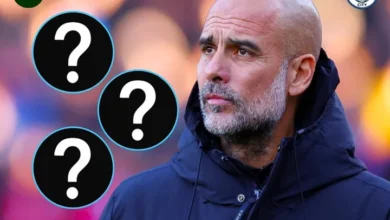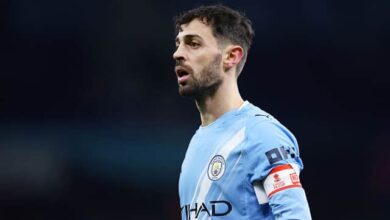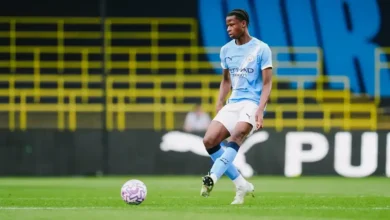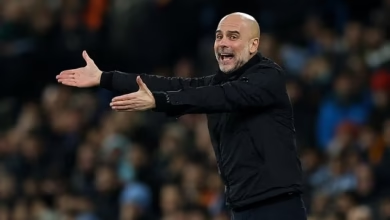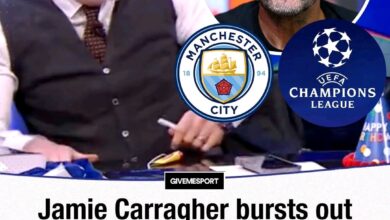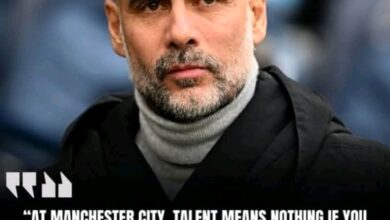Man City owners reap dividends after Man United deal agreed
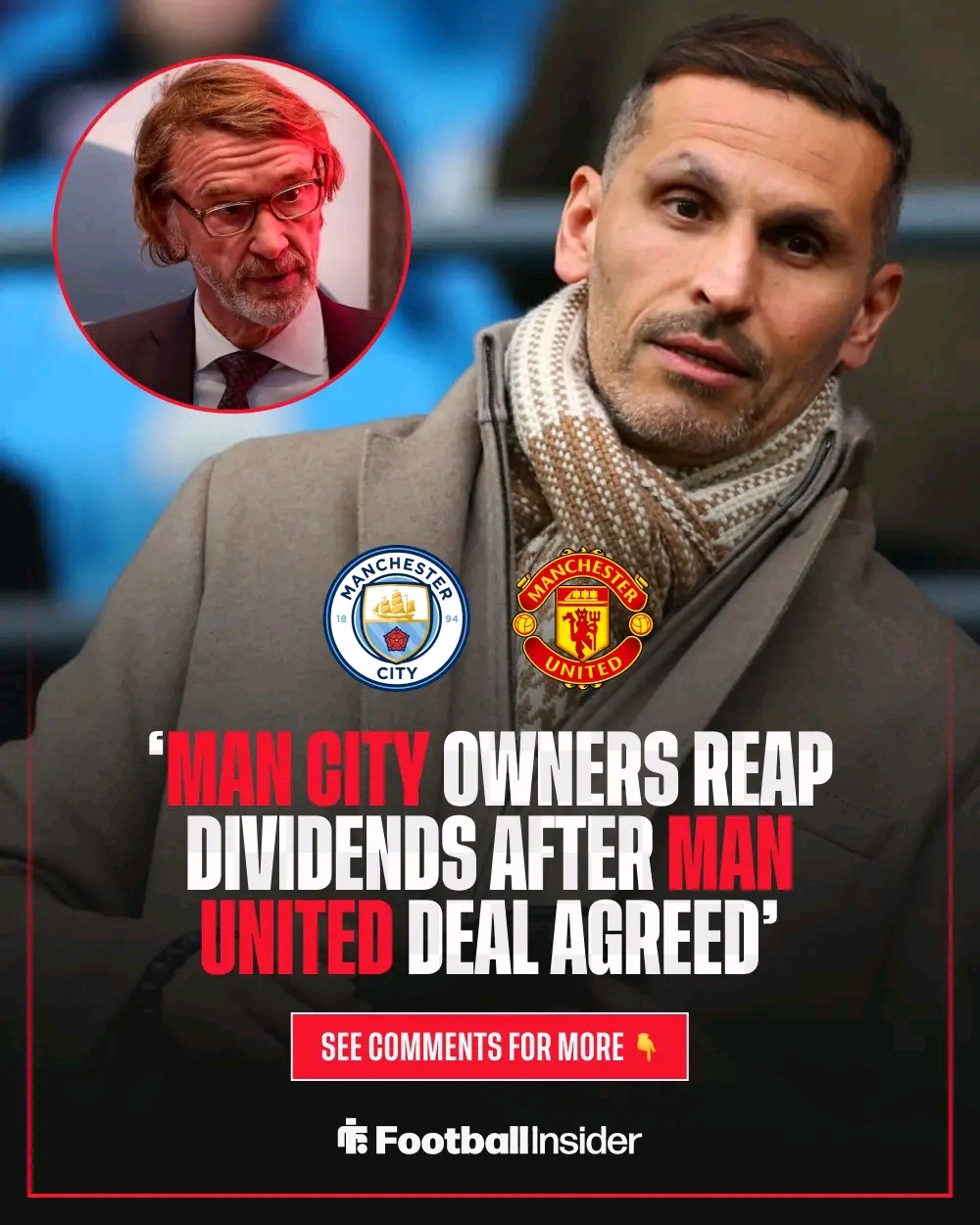
The intricate web of modern football ownership has once again demonstrated its far-reaching financial implications, as Manchester City’s ownership group has secured a substantial windfall from an unexpected source: a Manchester United transfer deal. This development highlights the complex interconnections within the global football ecosystem and the strategic foresight demonstrated by City Football Group (CFG) in building their multi-club empire.
Manchester City operates under the umbrella of City Football Group, an ambitious sporting conglomerate established in 2013 with the vision of creating a global football network. The organization is majority-owned by Sheikh Mansour bin Zayed Al Nahyan, the Deputy Prime Minister of the United Arab Emirates and a member of the ruling family of Abu Dhabi. Under his stewardship, CFG has evolved from a single-club ownership model into one of the most expansive multi-club portfolios in world football.
The strategic vision behind CFG extends far beyond traditional football ownership. The group has systematically acquired stakes in clubs across multiple continents, creating a network that spans diverse markets and football cultures. This approach represents a paradigm shift in how modern football ownership groups operate, moving from local investment to global portfolio management.
Sheikh Mansour’s investment philosophy has been characterized by long-term thinking and substantial financial commitment. Since acquiring Manchester City in 2008, he has transformed the club from a mid-table Premier League side into one of the world’s most successful football institutions. However, the creation of CFG in 2013 signaled an even more ambitious phase, one that would see the group’s influence extend across continents and football hierarchies.
CFG’s multi-club portfolio currently encompasses 13 football clubs strategically positioned across different regions and markets. This geographical diversification includes five clubs in Europe, four in the Americas, three in Asia, and one in Oceania. Each acquisition has been carefully considered not merely for its immediate financial returns, but for its potential contribution to the group’s broader strategic objectives.
The European portfolio serves as the foundation of CFG’s operations, with Manchester City as the flagship institution. The group’s European holdings provide access to some of the world’s most competitive leagues and lucrative television markets. These clubs serve as testing grounds for tactical innovations, player development systems, and commercial strategies that can be replicated across the network.
In the Americas, CFG has positioned itself to capitalize on the growing football markets in both North and South America. The acquisition of New York City FC provided entry into Major League Soccer, one of the world’s fastest-growing football leagues. This move demonstrated CFG’s understanding of emerging markets and their potential for long-term growth.
The Asian holdings reflect CFG’s recognition of football’s expanding popularity in the region. As traditional football markets reach maturation, Asian leagues present opportunities for significant growth in fan engagement, commercial partnerships, and talent development. The group’s Asian investments position them to benefit from this expansion while contributing to the development of football infrastructure in these regions.
The Oceanian presence, while smaller in scale, represents CFG’s commitment to truly global coverage. This comprehensive geographical spread ensures that the group maintains touchpoints across all major football markets, creating opportunities for cross-pollination of ideas, talent, and commercial partnerships.
Among CFG’s portfolio, French club Troyes holds particular significance in this narrative. The group acquired a majority stake in the Ligue 2 club in 2020, recognizing both its potential as a development platform and its strategic value within the French football ecosystem. France’s reputation as a talent-producing nation made Troyes an attractive proposition for CFG’s long-term player development strategy.
Troyes operates within CFG’s network as more than just another club acquisition. The French side serves multiple functions within the group’s broader strategy, including talent identification, player development, and market expansion. The club’s position in French football provides CFG with valuable insights into one of Europe’s most productive youth development systems.
The acquisition of Troyes also demonstrated CFG’s willingness to invest in clubs outside the top tier of European football. Rather than focusing exclusively on elite institutions, the group has shown strategic patience in developing clubs with potential for growth. This approach reflects a sophisticated understanding of football economics and the potential returns from patient capital investment.
The strategic value of Troyes extends beyond its immediate commercial potential. The club serves as a valuable component in CFG’s player pathway system, providing opportunities for young talents to develop in a competitive environment while maintaining connections to the broader network. This integration creates value through improved player development outcomes and enhanced transfer market positioning.
The financial windfall that CFG has received traces back to a transfer that occurred before their ownership of Troyes, highlighting the long-term value embedded in well-structured football contracts. Bryan Mbeumo, a talented forward who emerged through Troyes’ youth system, was sold to Brentford in 2019 for £5.8 million, a year before CFG’s acquisition of the French club.
Mbeumo’s development at Troyes showcased the club’s ability to nurture young talent. During his time with the French side, the Cameroon international made 46 appearances, recording 12 goals and four assists. While these statistics might seem modest, they represented the foundation for what would become a highly successful career trajectory.
The young forward’s performances at Troyes caught the attention of Brentford’s recruitment team, who recognized his potential for development in English football. The Bees’ decision to invest £5.8 million in Mbeumo proved to be one of their most astute pieces of business, demonstrating the value that can be extracted from carefully scouted talents in lower-tier European leagues.
Mbeumo’s journey from Troyes to Brentford illustrates the modern football talent pipeline, where players often progress through multiple clubs before reaching their full potential. His development path exemplifies how well-managed clubs can create value through player development, even when operating at levels below Europe’s elite competitions.
Mbeumo’s six-year tenure at Brentford transformed both his career trajectory and the club’s fortunes. His contributions proved instrumental in Brentford’s historic promotion to the Premier League, ending a 74-year absence from English football’s top flight. This achievement represented one of the most significant moments in the club’s history and demonstrated the impact that strategic player acquisitions can have on institutional success.
Following promotion, Mbeumo continued to excel in the Premier League, helping Brentford establish themselves as a competitive force in English football’s elite division. His performances during the club’s inaugural Premier League campaign showcased his ability to adapt to the increased intensity and quality of top-level football.
The Cameroon international’s statistical output during his time at Brentford tells the story of consistent improvement and adaptation. Over 242 appearances for the Bees, he accumulated 70 goals and 51 assists, numbers that reflect both individual excellence and tactical versatility. These statistics demonstrate his evolution from a promising young talent to a proven Premier League performer.
Mbeumo’s final season at Brentford proved to be his most productive, as he registered 20 goals and nine assists in 42 appearances. This output not only contributed significantly to Brentford’s Premier League campaign but also elevated his profile in the transfer market, ultimately leading to interest from Manchester United and other elite clubs
Manchester United’s pursuit of Mbeumo represented a significant statement of intent from the Old Trafford hierarchy. Under the guidance of manager Ruben Amorim, United identified the Brentford forward as a key target for their squad rebuilding efforts. The club’s willingness to invest substantially in Mbeumo reflected their belief in his ability to contribute to their return to elite-level competition.
The negotiation process between Manchester United and Brentford extended over several weeks, with both clubs working to structure a deal that satisfied their respective objectives. United’s determination to secure Mbeumo’s services demonstrated their commitment to acquiring proven Premier League talent rather than pursuing untested alternatives from other markets.
The final agreement saw Manchester United commit to an initial fee of £65 million, with additional performance-related bonuses potentially adding up to £6 million to the total package. This substantial investment positioned Mbeumo among the most expensive transfers in Manchester United’s recent history and reflected the premium attached to proven Premier League performers.
Mbeumo’s signing represented Manchester United’s second major acquisition of the summer transfer window, following the £62.5 million purchase of Matheus Cunha from Wolverhampton Wanderers. These investments signaled United’s intention to compete at the highest level and their willingness to support their manager’s vision with significant financial backing
The financial mechanics underlying Mbeumo’s transfer to Manchester United reveal the sophisticated contract structures that have become commonplace in modern football transfers. When Troyes originally sold Mbeumo to Brentford in 2019, they negotiated several protective clauses designed to ensure continued financial benefit from his future success.
According to reports from French newspaper L’Est Éclair, Troyes structured the original deal to include multiple financial mechanisms beyond the initial transfer fee. These provisions demonstrated the club’s foresight in recognizing Mbeumo’s potential for future development and the possibility of subsequent transfers at higher valuations.
The total windfall for Troyes from Mbeumo’s move to Manchester United amounts to €9.4 million (£8.1 million), a substantial sum that reflects the value of well-negotiated contract terms. This payment consists of multiple components, each serving different purposes within the football financial ecosystem.
The largest component of this windfall comes from a sell-on clause that entitles Troyes to €7.4 million (£6.4 million) from the Manchester United transfer. Sell-on clauses have become increasingly common in football transfers, allowing selling clubs to participate in the future value appreciation of players they have developed or identified.
The remaining €2 million (£1.7 million) comes from training compensation and solidarity payments, mechanisms established by FIFA to ensure that clubs involved in player development receive appropriate compensation. These payments recognize the investment that multiple clubs make in a player’s development throughout their career.
The windfall from Mbeumo’s transfer comes at a time when CFG faces significant financial challenges related to managing its expansive multi-club portfolio. The group’s latest published accounts for the 2023-24 financial year revealed losses of £122.2 million, contributing to cumulative losses of nearly £1 billion since the organization’s establishment in 2013.
These substantial losses reflect the ambitious nature of CFG’s expansion strategy and the significant investments required to establish and maintain a global network of football clubs. Building a multi-club portfolio involves not only acquisition costs but also ongoing operational expenses, infrastructure development, and competitive squad investment across multiple markets.
Despite these losses, CFG recorded impressive revenue figures of £933.1 million in 2023-24, demonstrating the group’s ability to generate substantial income from its diverse operations. This revenue generation capability provides the foundation for continued investment and expansion, even as the group manages significant operational costs.
Manchester City remains the crown jewel of CFG’s portfolio, contributing the majority of the group’s revenue and demonstrating the potential for individual clubs within the network to achieve exceptional financial performance. The club’s record-breaking revenue of £715 million and pre-tax profit of £74 million in 2023-24 showcase the financial rewards of successful football operations
CFG’s financial commitments extend beyond player acquisitions and operational expenses to include substantial infrastructure investments designed to support long-term growth. These investments reflect the group’s understanding that sustainable success in football requires comprehensive development across multiple areas.
The £300 million expansion of the Etihad Stadium represents one of CFG’s most significant infrastructure commitments. This investment will increase the stadium’s capacity and enhance the matchday experience for supporters while generating additional revenue streams through improved commercial facilities and hospitality offerings.
Plans for a new stadium in New York demonstrate CFG’s commitment to developing infrastructure across their global network. The New York City FC stadium project reflects the group’s long-term vision for establishing permanent homes for their clubs while creating valuable real estate assets that can appreciate over time.
These infrastructure investments require substantial capital commitments but offer the potential for significant long-term returns. Well-designed football facilities can serve multiple purposes, hosting not only matches but also commercial events, community activities, and other revenue-generating opportunities.
Finance expert Stefan Borson has noted that CFG’s substantial losses are largely attributable to these “huge” development plans rather than operational inefficiencies. This perspective suggests that the group’s financial position should be evaluated in the context of their long-term strategic objectives rather than short-term profitability metrics
CFG’s approach to multi-club ownership creates unique financial dynamics that differ significantly from traditional single-club ownership models. The interconnected nature of the portfolio allows for resource sharing, strategic player movements, and coordinated commercial activities that can generate value across the network.
Player development represents one of the most significant financial opportunities within the multi-club model. Young talents can be moved between clubs within the network to optimize their development while maintaining asset ownership. This approach can enhance player values while providing competitive advantages to individual clubs within the portfolio.
Commercial partnerships can be leveraged across the entire network, creating economies of scale that would be impossible for individual clubs to achieve independently. Sponsors and partners gain access to global markets through association with CFG, while the group can negotiate more favorable terms due to their expanded reach.
The multi-club model also provides natural hedging against market volatility in individual regions or leagues. While one club might face challenges due to local economic conditions or competitive setbacks, success elsewhere in the network can offset these temporary difficulties.
However, managing a multi-club portfolio also presents unique challenges, including regulatory compliance across different jurisdictions, cultural adaptation in diverse markets, and the complexity of coordinating activities across multiple time zones and languages.
The windfall from Mbeumo’s transfer, while relatively modest in the context of CFG’s overall operations, illustrates the potential for generating value through strategic patience and well-structured contracts. This example demonstrates how investments made years earlier can continue to generate returns as players progress through their careers.
CFG’s experience with the Mbeumo situation provides valuable lessons for future player acquisitions and contract negotiations. The importance of including appropriate sell-on clauses and development compensation mechanisms has been clearly demonstrated, suggesting that similar provisions will be standard in future transactions.
The success of this particular financial mechanism may encourage CFG to review and potentially enhance similar clauses in existing contracts throughout their portfolio. Optimizing these provisions could generate additional revenue streams as players continue to develop and move between clubs.
Looking forward, CFG’s multi-club strategy appears well-positioned to benefit from continued globalization of football markets. As the sport continues to expand into new regions and demographics, the group’s diverse portfolio provides multiple entry points into emerging opportunities.
The integration of technology and data analytics across the CFG network offers additional opportunities for value creation. Advanced scouting systems, performance analysis, and commercial optimization can be deployed across all clubs within the portfolio, creating competitive advantages that translate into financial returns.
The £8.1 million windfall that CFG has received from Bryan Mbeumo’s transfer to Manchester United represents more than just a fortunate financial outcome. It exemplifies the strategic thinking and long-term planning that underlies successful football ownership in the modern era. The ability to structure contracts that continue generating value years after their initial execution demonstrates the sophistication required to succeed in contemporary football economics.
CFG’s experience with this transaction validates their multi-club approach and provides a template for future value creation across their global portfolio. As the group continues to expand and develop its network of clubs, the lessons learned from the Mbeumo situation will inform their strategic decision-making and contract negotiations.
The broader implications of this case extend beyond CFG to the entire football industry. As clubs increasingly recognize the importance of sell-on clauses and development compensation, the financial landscape of football transfers will continue to evolve. Smart contract structuring and long-term thinking will become even more critical for clubs seeking to maximize their return on investment in player development and acquisition.
Ultimately, the Mbeumo windfall represents a successful example of how patient capital, strategic planning, and well-executed contracts can generate unexpected value in the complex world of modern football. For CFG, it provides both immediate financial benefit and validation of their comprehensive approach to football ownership and development.







